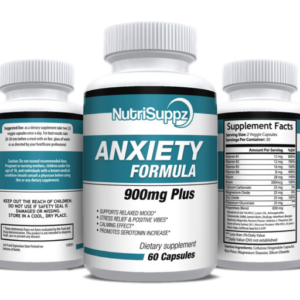30 Aug Navigating Social Anxiety: Insights and Strategies
Navigating Social Anxiety: Insights and Strategies
Social anxiety is a common yet often misunderstood condition that affects many individuals. It involves an intense fear of social situations where one might feel embarrassed or judged. At Nutrisuppz, we are committed to providing insights into social anxiety, its impact, and strategies for managing and overcoming it. This blog post explores the nature of social anxiety, its symptoms, underlying causes, and practical approaches for managing it effectively.
What is Social Anxiety?
Social anxiety, also known as social phobia, is characterized by an overwhelming fear of social situations. Individuals with social anxiety often worry about being scrutinized or judged by others, which can lead to avoidance of social interactions. This fear can interfere with daily activities, work, and personal relationships, significantly impacting quality of life.
The condition is more than just shyness; it is a persistent and intense fear that can lead to significant distress. Social anxiety may cause individuals to avoid social situations altogether or endure them with extreme discomfort.
Common Symptoms of Social Anxiety
Social anxiety manifests through both physical and emotional symptoms. Common symptoms include:
- Intense fear or anxiety in social situations
- Worry about being embarrassed or humiliated
- Avoidance of social interactions or events
- Physical symptoms such as sweating, trembling, or a rapid heartbeat
- Difficulty speaking or making eye contact
- Feelings of self-consciousness or inadequacy
These symptoms can vary in severity, but they generally lead to significant distress and avoidance behaviors. Recognizing these symptoms is the first step toward seeking help and managing social anxiety effectively.
Causes of Social Anxiety
The development of social anxiety can be attributed to a combination of factors. Genetic predisposition may play a role, as individuals with a family history of anxiety disorders are more likely to experience social anxiety. Biological factors, including imbalances in brain chemicals and neurotransmitters, also contribute to the condition.
Environmental factors, such as early childhood experiences, traumatic events, or chronic stress, can trigger or exacerbate social anxiety. Psychological factors, including negative thought patterns and low self-esteem, can reinforce the fear of social situations and contribute to the persistence of social anxiety.
Effective Strategies for Managing Social Anxiety
Managing social anxiety involves a combination of approaches that address both the mental and physical aspects of the condition. Cognitive-behavioral therapy (CBT) is a widely used and effective treatment that helps individuals identify and challenge negative thought patterns and develop coping strategies. CBT can be particularly useful in gradually exposing individuals to social situations and reducing anxiety.
Relaxation techniques, such as deep breathing exercises, progressive muscle relaxation, and mindfulness meditation, can help calm the mind and body in stressful situations. These techniques can be practiced regularly to reduce overall anxiety levels.
Engaging in regular physical exercise has been shown to have positive effects on mental health, including reducing symptoms of social anxiety. Activities like walking, jogging, or yoga can improve mood and reduce stress.
Building social skills through practice and exposure can also be beneficial. Gradual and controlled exposure to social situations, starting with less intimidating scenarios, can help individuals build confidence and reduce anxiety over time.
Seeking Professional Help
For individuals struggling with severe or persistent social anxiety, professional help may be necessary. A mental health professional can provide a thorough evaluation and develop a tailored treatment plan. Therapy, counseling, and medication may be recommended to address the symptoms and underlying causes of social anxiety.
If social anxiety is significantly impacting daily life or leading to severe distress, seeking help from a healthcare provider or therapist is crucial. Support is available, and effective treatment can help individuals manage social anxiety and improve their quality of life.
Conclusion
Social anxiety is a challenging condition that affects many individuals, but understanding and managing it is possible. By recognizing the symptoms, exploring the causes, and implementing effective strategies, individuals can take proactive steps toward reducing the impact of social anxiety. At Nutrisuppz, we encourage a comprehensive approach that includes therapy, lifestyle changes, and relaxation techniques to support mental well-being.




No Comments